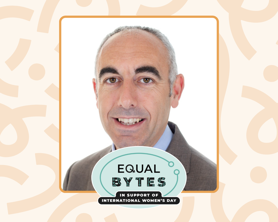What is AI ethics and why does it matter?
AI ethics is a framework that ensures AI systems are developed and used in a way that’s fair and transparent. It focuses on preventing discrimination and protecting privacy.
Without ethical considerations, AI can reinforce existing inequalities. A classic example of this is the COMPAS algorithm, used in the US criminal justice system to predict the likelihood of defendants reoffending. A study found that the algorithm was likely to wrongly flag defendants as high based on skin tone. Obviously, this serious concerns about racial bias in AI and showed the risks or using unexamined algorithms in decision-making processes as critical as this.
Ethical AI matters because tech reflects the values and biases of the people who create it. If it’s not checked, it can cause significant harm.
The consequences of neglecting AI ethics
1. Amazon’s biased hiring algorithm
Amazon developed an AI-powered recruitment tool to aid their hiring processes, but the system was trained on historical hiring data, which was heavily male-dominated. The AI learned to favour male candidates over women. The algorithm was scrapped in 2018 after it was revealed that it was reinforcing gender bias rather than eliminating it.
2. The rise of deepfake
You may have heard of deepfake AI, which has been circulating on the internet for a few years now. Deepfake AI can create hyper-realistic videos of people saying or doing things they never actually did. This sort of tech has been weaponised for things like cyber bullying and political manipulation. Deepfake content has been used across social media platforms to spread false information during political campaigns, making it harder for the public to make informed decisions in elections.
AI development cannot be approached with a "move fast and break things" mentality. There should be an ethical-first mindset when putting these systems together, making sure that AI systems serve society rather than cause harm.
To prevent establish an ethical approach towards creating AI, tech pros should:
- Prioritise fairness and transparency when designing AI systems.
- Consider the societal impact of their work beyond technical ability.
- Collaborate with ethicists and policy makers during the conception processes.
Best practices
While AI ethics is an ever increasing concern, many organisations are taking steps to implement responsible AI practices.
Several ethical AI frameworks provide guidance, including:
- IEEE Ethically Aligned Design, which focuses on embedding human values into AI development.
- EU AI Act, which proposes regulations to make AI systems are fair and transparent.
- Google’s AI Principles; a set of ethical guidelines for responsible AI development.
One company actively working on AI ethics is OpenAI, the creator of ChatGPT. OpenAI has put moderation policies in place to prevent harmful content from being created by its language models. This includes continuous updates to reduce bias and misinformation.
Another recommended practice is increasing diversity in AI teams. Studies show that diverse teams are better at identifying biases and making AI systems work for everyone.
The future of AI ethics
AI ethics is the future of technology. Governments are introducing regulations to hold tech companies accountable, and businesses are recognising the reputational risks of unethical AI.
Tech professionals can prepare for this shift by educating themselves on AI ethics by way of training courses and reading around industry developments. They can also advocate for ethical AI within their companies by raising concerns when they come up and participating in discussions surrounding AI ethics.
The rise of AI ethics marks a poignant turning point in the tech industry. AI is no longer just about optimising algorithms, it’s also about considering the ethical implications of every decision made during development.
By thinking beyond code, tech professionals can help deliver an AI-driven future that is fair and transparent. If you’re interested in learning more about how AI systems are created, or how you can get the most out of them, head to our website to see the courses we offer.
Related Articles
 Project Management
Project ManagementWhat does a Project Manager do?
Discover what a project manager truly does, from planning and team coordination to risk management and project evaluation. Learn how these skills drive successful project outcomes.
Read More Project Management
Project ManagementWhy Project Management certification trumps experience
Learning People Project Management expert, Matt Everitt, explores why being certified in project management is increasingly regarded as more important than relying solely on experience.
Read More Project Management
Project Management7 reasons you should become a certified PMP
Explore why becoming a certified PMP is a smart career move. Discover the value of PMP certification and how it boosts your project management skills and opportunities.
Read More Tech
TechInclusivity in Cyber Security | An interview with Rob Black
In this insightful conversation, Rob Black, a prominent figure in the UK cybersecurity industry, discusses the importance of creating an inclusive and supportive environment for everyone, regardless of background or gender.
Read More

